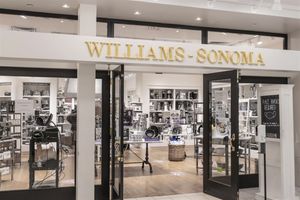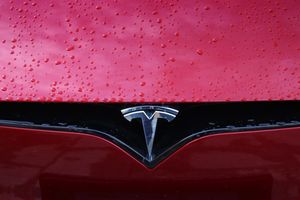WASHINGTON, Aug. 28, 2024 (GLOBE NEWSWIRE) -- The Coca-Cola Company recently reported that the percentage of total beverage volume that it sold in reusable packaging in 2023 was just 14%, unchanged from the 14% reported by Coca-Cola for 2022. This update comes over two years after Coca-Cola pledged to reach 25% reusable packaging by 2030 and follows the company, last year, reporting a 2-percentage point decrease in reuse from 2020 to 2022 (from 16 % to 14%). Earlier this year, most of the company’s largest bottlers reported declining sales of beverages in reusable packaging. In light of this lack of progress and commitment by the company’s bottlers, Oceana is calling on Coca-Cola to disclose its plan for how the company will meet its reuse goal by its 2030 deadline.
Coca-Cola's reported lack of progress follows the company’s issues at the Paris 2024 Olympics where, for the first time, drinks were served in reusable cups on a large scale. Due to reported operational considerations and other decisions made by the company, millions of servings of beverages were poured into these cups from single-use plastic bottles, which resulted in widespread criticism of the company and its partners at the Olympic Games.
“The numbers in the company’s recent “Environmental Update” make it clear — Coca-Cola is not on track to meet its reuse goal, which is terrible news for the oceans,” said Oceana’s Senior Vice President Matt Littlejohn. “The company has failed to make progress and none of its largest bottlers have made the commitments needed to reach this goal. It’s time for the company to disclose to its investors and customers exactly how it will meet its 25% goal by 2030. More reusable packaging means less single-use plastic. The oceans can’t afford to have the world’s largest plastic polluter, according to recent reports, break this promise.”
Oceana estimates that if Coca-Cola meets its commitment to reach 25% reusable packaging, the company could avoid producing the equivalent of over 100 billion 500ml single-use plastic bottles and cups. Based on global rates of aquatic plastic pollution from a recent peer-reviewed study, Oceana estimates that approximately 8.5 to 14.7 billion plastic bottles and cups could be prevented from reaching our waterways and seas. Coca-Cola, according to the Break Free From Plastic Brand Audit, has been the world’s top plastic polluter for the last six years. Refillable bottles, the dominant form of reusable packaging used by Coca-Cola and its bottlers, are reused up to 50 times, depending on what material they are made of (plastic or glass). Each use replaces the need for a single-use plastic bottle that would otherwise be thrown away or littered, with either pathway possibly leading to the oceans.
Almost all the company’s major bottlers — which account for nearly half of everything sold by the company — reported reusable packaging (as a percentage of their total volume of sales) at levels below what they sold when the company first made its commitment in 2022. None of Coca-Cola's top five bottlers have made an ambitious commitment to increase reusable packaging. Instead, the two largest bottlers of refillable bottles in the Coca-Cola system, Arca Continental and Coca-Cola FEMSA, have now adopted goals below their original percentage shares reported when Coca-Cola first made its pledge.
- Coca-Cola FEMSA accounted for nearly one-quarter of all reusable sales by Coca-Cola worldwide in 2023. It reported that the reusable share of its total sales declined from 34% in 2021 to 32% in 2023. In addition, Coca-Cola FEMSA stated in its most recent integrated annual report that the company has adopted a goal to reach 25% reusable packaging by 2030 which would be a nearly 10-percentage point decrease from when Coca-Cola’s pledge was first made.
- Arca Continental, which accounted for more than 10% of all reusable sales by Coca-Cola in 2023, reported that its reusable share declined from 26% in 2021 to 22.7% in 2023. Arca Continental has adopted a goal, in support of the Coca-Cola pledge, of also having 25% of all its sales be in reusable packaging — one percentage point lower than the share of reusable packaging it sold in 2021.
- Coca-Cola Hellenic Bottling Company (Coca-Cola HBC), which accounted for more than 5% of all reusable sales by Coca-Cola in 2023, reported that its reusable share, excluding recently acquired operations in Egypt, was 13.6% in 2021 and 13.3% in 2023.
- Coca-Cola Europacific Partners (CCEP) — the largest bottler of Coca-Cola products in the world — reported that its share of reusable packaging grew slightly from 10.4% in 2021 to 11.4% in 2023. CCEP has made no public commitment to increase reusable packaging.
Oceana is the largest international advocacy organization dedicated solely to ocean conservation. Oceana is rebuilding abundant and biodiverse oceans by winning science-based policies in countries that control one-quarter of the world’s wild fish catch. With more than 300 victories that stop overfishing, habitat destruction, oil and plastic pollution, and the killing of threatened species like turtles, whales, and sharks, Oceana’s campaigns are delivering results. A restored ocean means that 1 billion people can enjoy a healthy seafood meal every day, forever. Together, we can save the oceans and help feed the world. Visit Oceana.org to learn more.
Contacts: Gillian Spolarich, Anna Baxter | email: gspolarich@oceana.org, abaxter@oceana.org







